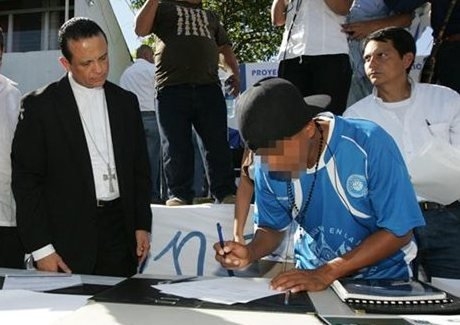Mayors of El Salvador’s “peace zones” say the initiative has come to a standstill due to a lack of federal funds, yet another sign that the country’s gang truce is dying a slow death.
In eight of El Salvador’s 11 designated peace zones — areas where members the two major gangs Mara Salvatrucha (MS-13) and Barrio 18 have pledged to end all criminal activity — mayors say government-promised funds for violence prevention initiatives have failed to materialize, reported La Prensa Grafica. The officials told the newspaper the truce had therefore become unsustainable.
Salvador Ruano, mayor of Ilopango, which last January became the first peace zone to be inaugurated, said, “the current government does not want to know. The president has hidden himself away when he was one of the people who initiated this.”
Raul Mijango, a former defense ministry adviser who was one of the mediators of the gang truce, agreed between MS13 and Barrio 18 in March 2012, said gang members were the only ones putting any effort in to the truce and taking promised actions.
Security Minister Ricardo Perdomo claimed every government ministry had violence prevention programs in place, and that money had been invested in municipalities across the country without a “pompous” fuss being made about it. “That is a lie, ask him how much money the administration has spent,” said Mijango.
InSight Crime Analysis
There was initially great cause for optimism for El Salvador’s gang truce, with murder rates dropping by 45 per cent within a year of it being signed. But since that impressive feat was announced, bad news has just kept coming — including rises in extortion; disappearances and clandestine grave discoveries; reports gang leaders cannot enforce the agreement among all members, and complaints that the social programs needed to ensure the truce’s sustainability have not been enacted.
SEE ALSO: El Salvador’s Gang Truce: Positives and Negatives
The government has gone back and forth on whether it supports the truce or not, and in recent months political debate over its value has become increasingly bitter, as campaigns for next year’s presidential elections get underway.
Without significant and committed social investment the project is destined to failure, and the mayors’ comments this week suggest more firmly than ever that such an outcome is only a matter of time.

